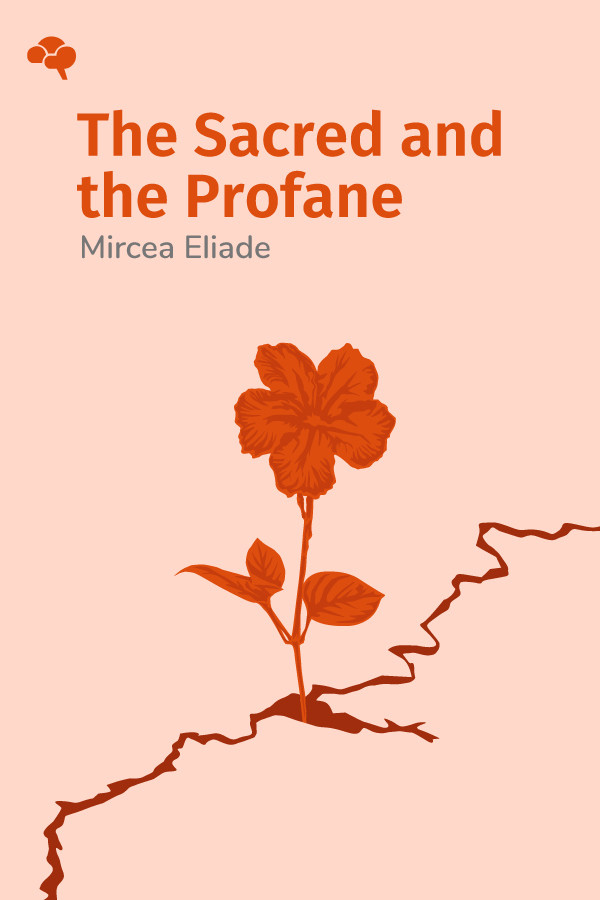Mircea Eliade
Mircea Eliade (Romanian: [ˈmirtʃe̯a eliˈade]; March 13 [O.S. February 28] 1907 – April 22, 1986) was a Romanian historian of religion, fiction writer, philosopher, and professor at the University of Chicago. He was a leading interpreter of religious experience, who established paradigms in religious studies that persist to this day. His theory that hierophanies form the basis of religion, splitting the human experience of reality into sacred and profane space and time, has proved influential. One of his most instrumental contributions to religious studies was his theory of eternal return, which holds that myths and rituals do not simply commemorate hierophanies, but, at least in the minds of the religious, actually participate in them.
His literary works belong to the fantastic and autobiographical genres. The best known are the novels Maitreyi ('La Nuit Bengali' or 'Bengal Nights'), Noaptea de Sânziene ('The Forbidden Forest'), Isabel și apele diavolului ('Isabel and the Devil's Waters'), and Romanul Adolescentului Miop ('Novel of the Nearsighted Adolescent'); the novellas Domnișoara Christina ('Miss Christina') and Tinerețe fără tinerețe ('Youth Without Youth'); and the short stories Secretul doctorului Honigberger ('The Secret of Dr. Honigberger') and La Țigănci ('With the Gypsy Girls').
Early in his life, Eliade was a journalist and essayist, a disciple of Romanian philosopher and journalist Nae Ionescu, and a member of the literary society Criterion. In the 1940s, he served as cultural attaché to the United Kingdom and Portugal. Several times during the late 1930s, Eliade publicly expressed his support for the Iron Guard, a Christian fascist political organization. His political involvement at the time, as well as his other far right connections, were frequently criticised after World War II.
Noted for his vast erudition, Eliade had fluent command of five languages (Romanian, French, German, Italian, and English) and a reading knowledge of three others (Hebrew, Persian, and Sanskrit). He was elected a posthumous member of the Romanian Academy.
The Sacred and The Profane: The Nature of Religion
Mircea Eliade (1907-1986) was a Romanian historian of religion, a philosopher, and a novelist. His research led him all over the world, including to British-occupied India, Italy, and the United States, where he held a professorship at the University of Chicago. In addition to his native Romanian, he mastered French, Italian, German, and English, and he learned to read Persian, Sanskrit, and Hebrew. Eliade is most remembered for his significant contributions to the study of religion.
In The Sacred and the Profane (originally published in 1957), he explores how religious man (Homo religiosus) experiences the sacred, and how these experiences form the starting point of religions. He also describes how the non-religious tend to experience life in the profane mode of operating. Eliade emphasizes throughout his work that a totally profane existence is impossible, and that even the modern, industrialized Westerner—who is mostly terrified and suspicious of the sacred—still preserves aspects of religious observance without even realizing it.
Bio information sourced from Wikipedia

